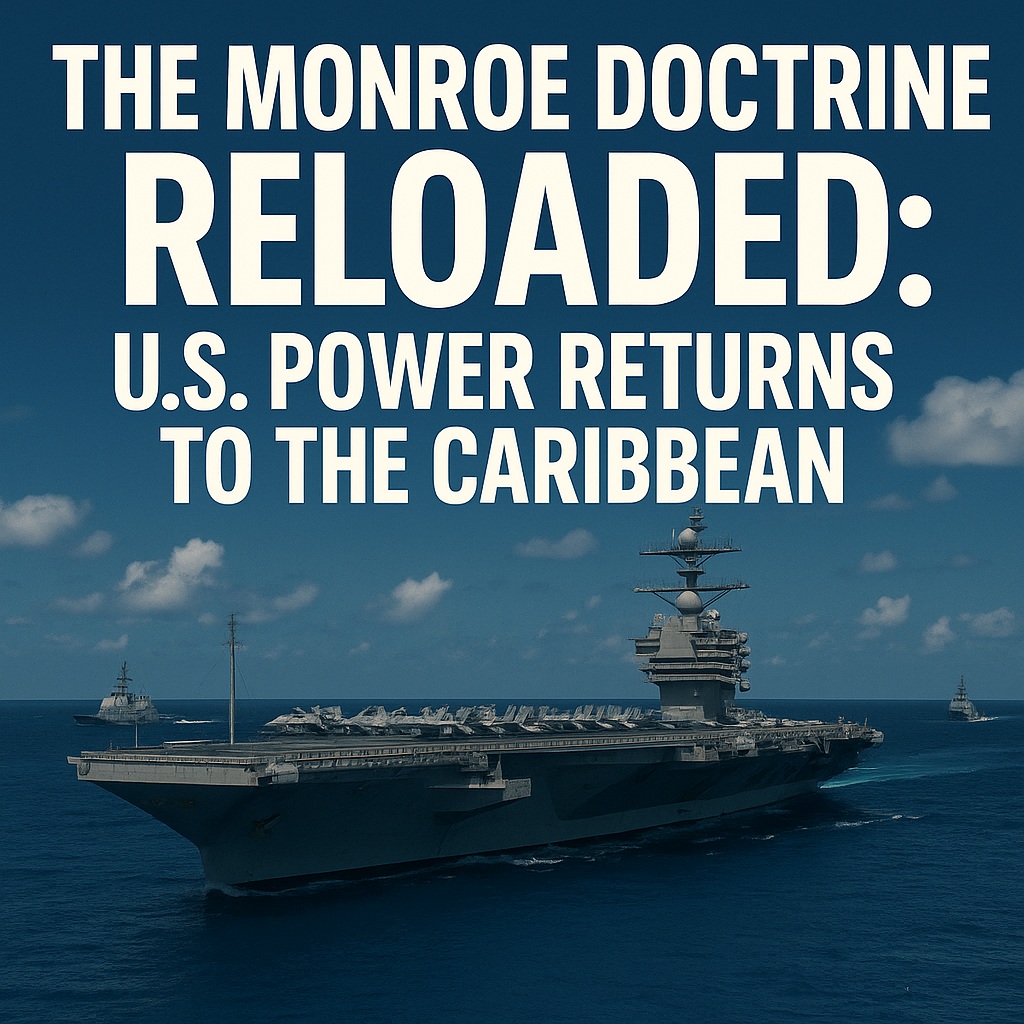Advertisement

By Tom Clifford
We are seeing the largest deployment of US maritime power to the Caribbean since the Cuban missile crisis as the Monroe doctrine again shapes Washington’s policy.
Formulated in the 19th century, the doctrine established US hegemony over Latin America.
Something has changed in Washington. A military buildup targeting the authoritarian regime of Venezuelan President Nicolás Maduro seems to make a mockery of US President Donald Trump’s often repeated pledge, both as candidate and president, to end US involvement in foreign conflicts.
US forces have carried out eight strikes in recent weeks, killing at least 38 people. These strikes blew up boats in the Caribbean, just off Venezuela’s coast. Washington said the boats were involved in drug trafficking. No proof of this has been submitted by Washington.
It is eerily reminiscent of the Gulf of Tonkin incident in 1964 when two US destroyers falsely claimed they had been attacked by North Vietnamese forces. This led to heavier US involvement in the Indochina. The attack on the destroyers never happened. Is false information again being used to justify US military action?
Trump pledged to end US involvement in foreign conflicts in a commitment that was unique among presidential hopefuls.
He expressed what at times seemed like disgust at the cost borne by the US in what he called the “forever wars” of Afghanistan and Iraq and vowed that he would not send US troops into harm’s way.
When Trump returned to the White House Vice-President JD Vance seemed to be the man who had his ear. But now, at least on Venezuela, it is Secretary of State Marco Rubio who is guiding Trump.
Rubio’s rise and greater influence is because of how he shaped the debate. No point talking about human rights or democracy. Maduro was declared the winner of the 2024 election that foreign observers and many in Venezuela denounced as neither free nor fair. So the reasoning was changed to highlight a perceived threat to the US.
Rubio argued that strikes on small boats are legal because they were smuggling drugs and posing a security risk to the US and the official head of state was nothing more than a drug lord.
Rubio is not a lone voice and enjoys the support of influential allies, especially Stephen Miller, the powerful White House deputy chief of staff, and Susie Wiles, the chief of staff.
The Secretary of State was instrumental in getting the Pentagon to announce that the USS Gerald R. Ford aircraft-carrier strike group, a multi-ship force staffed by as many as 5,000 troops, would travel from the Mediterranean to the Caribbean. The group, currently on a port visit in Croatia, will take just over a week to position themselves.
Approximately 6,500 US Marines and sailors are already in the region, operating from eight vessels. On top of this 3,500 troops nearby are ready to be called upon.
Once these ships arrive the US will have as many vessels in the Caribbean as it used to defend Israel from Iranian missile strikes this summer. The carrier strike group has immense firepower but, more importantly, they provide a launching pad for air strikes inside Venezuela.
This is no longer about killing alleged drug runners in small fishing vessels. It is about enforcing a doctrine.
###
Related articles:
US sending aircraft carrier strike group to the Caribbean
U.S. Military Intervention – A Historical Overview
Tensions Escalate as U.S. Deploys B-52 Bombers Over Caribbean Amid Venezuela Standoff
###
ADVERTISEMENT







